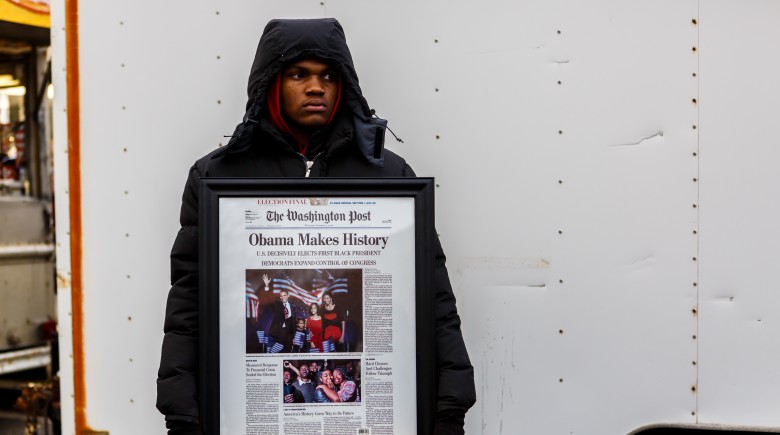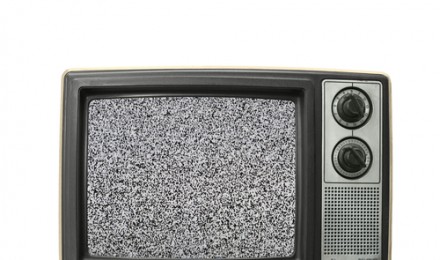The Washington Post, the most widely circulated daily newspaper published in our nation’s capital, one of the oldest papers in America and considered one of the leading American newspapers, was sold on August 5, 2013 to Jeff Bezos, the CEO of Amazon.com for $250 million in cash.
Focusing most of its efforts on politics on the national stage, The Washington Post is published both digitally and in print (a fast-disappearing trend for both newspapers and magazines these days). The paper became well known outside of Washington for its reporting during the early 1970s on the Watergate scandal, led by 2 of its reporters, Carl Bernstein and Bob Woodward. Their reporting is attributed in large part towards forcing the resignation of President Richard Nixon and won the paper the 1973 Pulitzer Prize.
The paper had been owned by its longtime publisher, the Washington Post Company, for many years. Its chairman and CEO, Donald Graham (son of Katharine Graham, the legendary head of The Washington Post newspaper for over 20 years, including during its heyday covering Watergate), said on August 5 that the sale of the paper to Bezos was made after watching years of both changes and challenges to the newspaper industry.
According to The Atlantic, the Washington Post Company had been quietly soliciting offers for the paper and had about 6 possible buyers before deciding to sell to Bezos. Graham also commented that he believes Jeff Bezos will be a “uniquely good new owner”.
The paper had been under the control of the Graham family for 80 years, having been purchased by Eugene Meyer in 1933 who then passed the reins as publisher on to his son-in-law, Philip Graham (grandfather of current CEO Donald Graham), in 1946.
And although Bezos is most widely known as the CEO of Amazon.com, his purchase of the paper was done as an individual and not related to Amazon.com (the world’s biggest online retailer) at all.
Since the Washington Post Company owns other mass media companies, like Kaplan (which provides educational services for students, schools and companies), as well as some regional newspapers in various cities throughout the country, they’ve indicated they’ll re-name the company and continue to run their other subsidiaries.
Bezos issued a letter to the employees of the Washington Post on the day of the sale. In the letter he said that the values of the paper don’t need to be changed and promised he would not be leading the day-to-day activities of the paper. He said the existing leadership team had agreed to stay in place.
Pointing out that whether or not the paper had been sold the entire news business was evolving because of the speed at which information is disseminated these days due to the internet, Bezos said that he intends to listen to what the readers want and care about.
Since more and more of us get our information online and fewer and fewer of us are willing to pay for access to that content (either in print or digitally), it seems that Bezos – and any newspaper owner these days – will continue to fight an uphill battle to make a newspaper both relevant and profitable. Having watched his success at Amazon.com, it’s hard not to think he’ll be an innovator at the Washington Post as well.
The Washington Post, the most widely circulated daily newspaper published in our nation’s capital, one of the oldest papers in America and considered one of the leading American newspapers, was sold on August 5, 2013 to Jeff Bezos, the CEO of Amazon.com for $250 million in cash.
Focusing most of its efforts on politics on the national stage, The Washington Post is published both digitally and in print (a fast-disappearing trend for both newspapers and magazines these days). The paper became well known outside of Washington for its reporting during the early 1970s on the Watergate scandal, led by 2 of its reporters, Carl Bernstein and Bob Woodward. Their reporting is attributed in large part towards forcing the resignation of President Richard Nixon and won the paper the 1973 Pulitzer Prize.
The paper had been owned by its longtime publisher, the Washington Post Company, for many years. Its chairman and CEO, Donald Graham (son of Katharine Graham, the legendary head of The Washington Post newspaper for over 20 years, including during its heyday covering Watergate), said on August 5 that the sale of the paper to Bezos was made after watching years of both changes and challenges to the newspaper industry.
According to The Atlantic, the Washington Post Company had been quietly soliciting offers for the paper and had about 6 possible buyers before deciding to sell to Bezos. Graham also commented that he believes Jeff Bezos will be a “uniquely good new owner”.
The paper had been under the control of the Graham family for 80 years, having been purchased by Eugene Meyer in 1933 who then passed the reins as publisher on to his son-in-law, Philip Graham (grandfather of current CEO Donald Graham), in 1946.
And although Bezos is most widely known as the CEO of Amazon.com, his purchase of the paper was done as an individual and not related to Amazon.com (the world’s biggest online retailer) at all.
Since the Washington Post Company owns other mass media companies, like Kaplan (which provides educational services for students, schools and companies), as well as some regional newspapers in various cities throughout the country, they’ve indicated they’ll re-name the company and continue to run their other subsidiaries.
Bezos issued a letter to the employees of the Washington Post on the day of the sale. In the letter he said that the values of the paper don’t need to be changed and promised he would not be leading the day-to-day activities of the paper. He said the existing leadership team had agreed to stay in place.
Pointing out that whether or not the paper had been sold the entire news business was evolving because of the speed at which information is disseminated these days due to the internet, Bezos said that he intends to listen to what the readers want and care about.
Since more and more of us get our information online and fewer and fewer of us are willing to pay for access to that content (either in print or digitally), it seems that Bezos – and any newspaper owner these days – will continue to fight an uphill battle to make a newspaper both relevant and profitable. Having watched his success at Amazon.com, it’s hard not to think he’ll be an innovator at the Washington Post as well.






